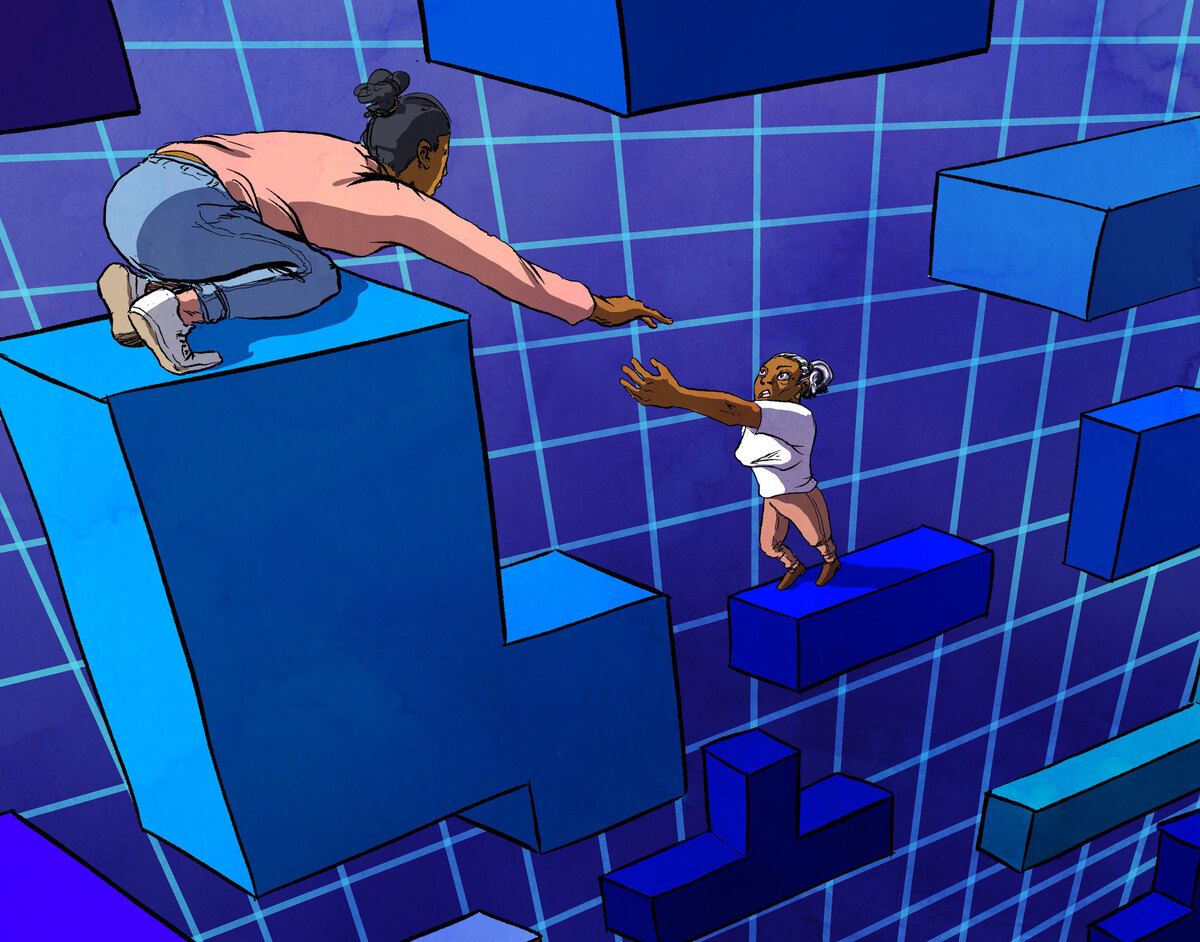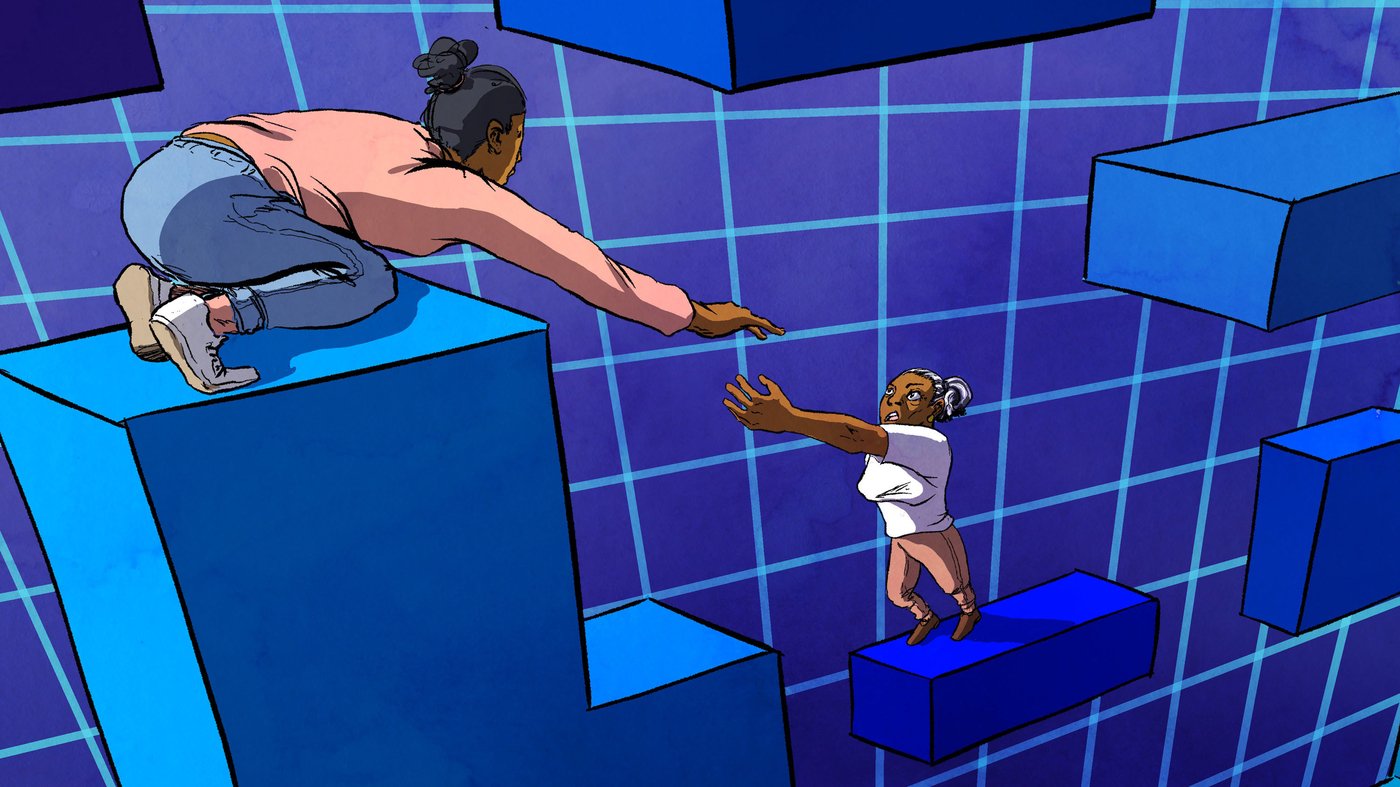

On Tuesday afternoon, the news came in that Joe Biden, the presumptive Democratic nominee for president, picked Sen. Kamala Harris to be his running mate. That makes her the first Black woman and the first South Asian woman to be on a major party ticket as vice president. It’s a historic moment that underlines the themes of our episode this week, which is all about Black Democrats: Kamala Harris is a polarizing figure, especially within this voting bloc, and her selection isn’t an automatic shoo-in for winning Black votes for Biden.

Pundits talk a lot about how Black people are the base, even the heart of the Democratic party. It’s common wisdom that in a presidential election, you have to win Black voters if you want to win the Democratic primary. There’s a myth about Black voters, who are often considered as one big, happy family who all want the same things; at least, that’s what Joe Biden suggested when he recently said that “unlike the African-American community, with notable exceptions, the Latino community is an incredibly diverse community with incredibly different attitudes.”
But the reality is that many Black Democrats want very different things. There’s the KHive (Kamala lovers), and then there’s the #KamalaIsACop constituency. (And in case you’re confused, those people…don’t like Kamala Harris.)
So this week, we’re tackling some of the messy conversations among Black Democrats, which have really come to the foreground in this monumental election cycle.
To understand more about Black Dems, we talked to Chryl Laird, a political scientist at Bowdoin College. Along with Princeton Prof. Ismail K. White, she’s the co-author of Steadfast Democrats: How Social Forces Shape Black Political Behavior. Below is an excerpt of what she told us, which has been condensed and edited for clarity.
Can you give us a quick summary of what Steadfast Democrats is about?
African-Americans heavily support the Democratic Party, at levels reaching 80 to 90%. We’ve seen that over time. And we were wondering, well, why is that? And our argument is that Democratic partisanship amongst African Americans is maintained through social networks. The partisanship isn’t just about African Americans aligning with the party politics, but that the social connections that African Americans have also serve as motivation and a norm for how they participate in politics.
Black voters are often called a “captured constituency.” Can you tell me more about what that means?
That comes from the work of Paul Frymer from Princeton. It means that African Americans kind of are limited and constrained in their options politically. So in terms of how they would then support parties within this two party system, they’re kind of stuck. They have to make a decision between these two parties in a way that is going to be a challenge, because one party is going to be the main one that speaks to their issues.
And so people consider them captured by the Democratic Party, because they seem to be constrained in the options that they have politically. There’s the idea that Black voters are just stuck there, and don’t have a lot of leeway to move in any other direction. And I think that speaks somewhat to actual constraints, but it doesn’t speak to the way that Black people are actually leveraging their political behavior and their collective behavior as a group.

There are the systemic challenges that Black voters are going to be facing in making a choice, because of this two party system.But there’s an awareness of what’s going on, and African Americans are able to kind of work in a way that is deliberate and purposeful.
The Democratic and Republican National Conventions are slated to happen in the next couple of weeks. And there have been a lot of prognostications about the way Black people would behave in the primaries. What do you think were the biggest myths about the ways Black folks vote?
I think the biggest misconception was about the support for Joe Biden amongst African Americans, that African Americans didn’t feel strongly about Joe Biden. And I feel like polling that was being done in the lead up to some of the primaries didn’t have large enough African American samples to be able to determine what impact that was going to have. So I think there was an underestimation of Joe Biden’s meaningfulness to a large constituency of Democratic voters. I think there was an underestimation of the influence those black voters would have.
Were you surprised that someone like Elizabeth Warren didn’t do better with black voters?
No, because she was dealing with a challenge: She’s a New England Democrat, so she is not as known to African Americans. I think she has party politics and policies that are appealing in a lot of ways. But I don’t think she very much resonated.
She seemed to have appeal among women, particularly educated women and white women—and among some African American women with the same kind of educational background. But she has a bit of a distance from the group, and wasn’t really able to get that to happen. In the primaries, we saw Bernie Sanders and Elizabeth Warren both attempting to make appeals to Black voters and having events where there were almost no Black people there, even though they were meant to be Black events.
So they were trying, but they were up against a situation where Biden was already tapped into the social networks they wanted to tap into.
There seems to be this generational divide among black Democrats. During the primaries, young Black people were basically begging their Boomer and Gen X parents to move away from Biden and pick more candidates like Bernie Sanders or Elizabeth Warren. So what do you think Biden’s nomination augurs for these younger black voters in November?
I think he’s going to deal with a turnout challenge among young voters. Youth turnout is always something that’s waned a bit. At certain points, especially during the Obama years, we saw turnout at levels that we hadn’t really seen before. But that still was not comparable to what we saw of older voters. So Biden is going to have a challenge with the mobilization of those young voters on his behalf. I think if a young voter is going to turn out, and they weren’t a Biden supporter and are African-American, they will reluctantly vote for Biden. It’s going to be an issue of getting those who are not as motivated to vote for him to turn out at all.
Right now, the issues around Black Lives Matter is an opportunity for Biden to attempt to appeal to those voters, because those young people are a lot of the people who are being very vocal about what they want to change. And he has space here to show that he would be taking a more progressive stance on these types of policy issues. Thus far, he’s made some comments that don’t necessarily seem to indicate that he’s there with them. But he could be willing to speak more about some of these issues, or he could speak about appointing people into positions to create overarching policy that would try to stem issues of police brutality and police violence.
What might Biden’s choice of a vice president mean for Black turnout in November?
We don’t actually have the data to predict what that would look like; we don’t know what having a person of color on your ticket does for the mobilization of Black voters. But it signals a direction in Biden’s politics that maybe people wouldn’t believe he is embodying, except through symbolic rhetorical appeals.
Black women are the Democratic party; wherever Black women go, so goes the party. They are the most loyal to the party, even when they themselves may not see representation that reflects themselves. They were there with Barack Obama, although he was a man. They were there with Hillary Clinton, more than any other racial group of women, even though she’s white
It could be even more energizing for Black women who are already very engaged, but they also have a very strong influence on others in the group. Black women don’t just vote by themselves. They vote more with the collective in mind. That one Black woman can mobilize 10 other people to vote. They are the aunties. They are the mothers, the grandmothers; they are the people who are very revered in the community. Right. Like the matriarchal positioning of black women in the black community. They have been denied a lot of opportunities politically, due to patriarchy. But at the end of the day, they still turn out. They still mobilize, they still do the activism, even when they don’t see themselves being represented.
To hear more, listen to this week’s Code Switch episode wherever you get your podcasts, including NPR One, Apple Podcasts, Spotify, Pocket Casts, Stitcher, Google Podcasts and RSS.

Felecia Phillips Ollie DD (h.c.) is the inspiring leader and founder of The Equality Network LLC (TEN). With a background in coaching, travel, and a career in news, Felecia brings a unique perspective to promoting diversity and inclusion. Holding a Bachelor’s Degree in English/Communications, she is passionate about creating a more inclusive future. From graduating from Mississippi Valley State University to leading initiatives like the Washington State Department of Ecology’s Equal Employment Opportunity Program, Felecia is dedicated to making a positive impact. Join her journey on our blog as she shares insights and leads the charge for equity through The Equality Network.





